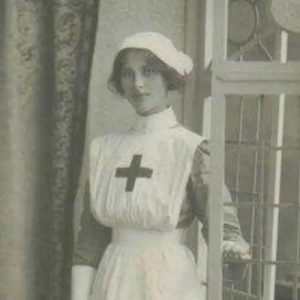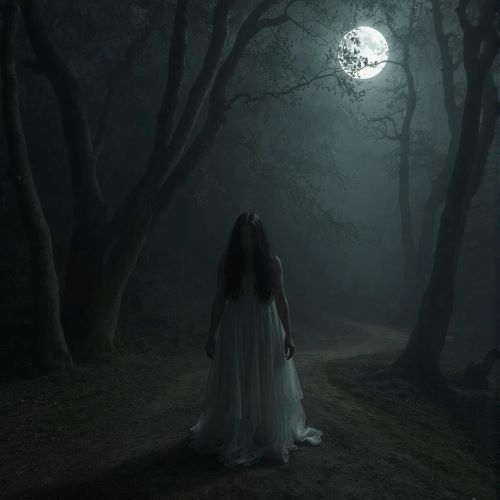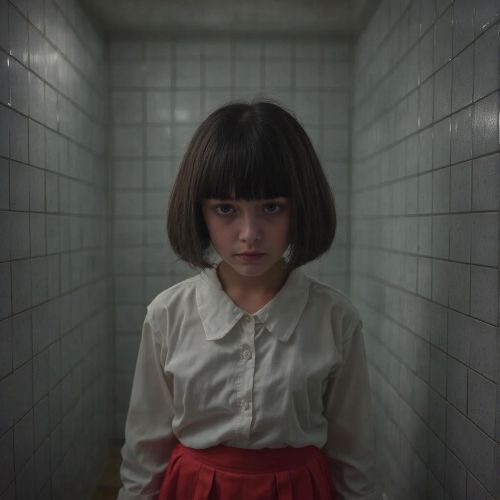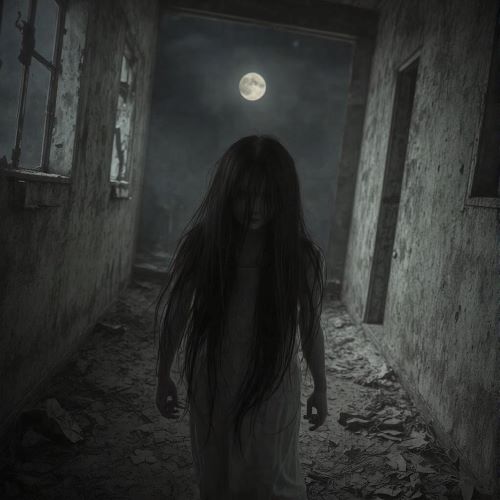La Planchada : The Ghostly Nurse
| Description | |
|---|---|
| Origin | Mexico |
| Classification | Ghost |
| Demeanour | Benevolent |
| Habitat | Hospitals |
| Status | Not Proved |

Introduction
Among Mexico’s haunting legends, La Planchada stands out as a Ghostly nurse whose story blends compassion, heartbreak, and spectral devotion. Known as “The Ironed Lady” because of her immaculate, wrinkle-free uniform, La Planchada is said to wander hospitals, offering care to patients long after her death. Unlike darker spirits that inspire fear, her legend has endured as one of eerie benevolence, capturing imaginations across generations.
Physical Attributes
La Planchada is most often described as a nurse whose uniform is so flawlessly ironed it appears almost otherworldly. Witnesses claim she wears a traditional white dress uniform with starched edges, polished shoes, and perfectly styled hair. Some accounts say she emits a soft glow as she glides down hospital corridors, while others describe her presence as accompanied by a faint antiseptic scent, reinforcing her ties to medical care. On rare occasions, more chilling stories portray her with glowing eyes or a face too flawless to be human, emphasizing her spectral nature.
First Sighting/Reporting
The earliest connections between La Planchada and real hospitals trace back to Mexico City in the mid-20th century, particularly to Hospital Juárez. Patients began reporting encounters with a mysterious nurse who tended to them during night shifts, only for hospital staff to later confirm no such nurse had been on duty. These unexplained recoveries, paired with repeated stories of a kind but silent figure, helped solidify her presence in local folklore. While exact dates are debated, many scholars and folklorists place her origin in the 1930s, aligning with the timeline of nursing reforms and professionalization in Mexico.
Other Names
Although most widely known as La Planchada, the legend has other variations in name and description. She is sometimes called La Enfermera Fantasma (“The Phantom Nurse”) or La Dama de Blanco (“The Lady in White”), titles that reflect both her profession and her ghostly essence. Folklore often links her earthly identity to a nurse named Eulalia, who was said to be deeply dedicated to her profession but died under tragic circumstances. Depending on the region, some narrators preserve her personal name, while others prefer the symbolic title that underscores her pristine appearance.
Modus Operandi
What makes La Planchada distinct among ghostly figures is her behavior. Rather than spreading terror, she is believed to continue her duties as a caregiver. She most often appears during the quiet hours of the night, visiting patients who are critically ill or neglected. Those who encounter her describe gentle touches, whispered reassurances, or even medical care that leads to inexplicable recovery by morning.
Folklore attributes her eternal service to a tragic backstory: in life, Eulalia was said to have once failed her patients due to personal heartbreak, and her ghostly work is seen as penance. While most stories emphasize her healing nature, darker variations exist, suggesting she sometimes drains vitality from the weak or punishes the negligent. Regardless of interpretation, her role remains tied to themes of unfinished duty and devotion beyond the grave.
Pop Culture References
La Planchada has transcended oral storytelling to become a fixture in Mexican pop culture. She has been featured in folklore archives, paranormal podcasts, and YouTube channels dedicated to ghost stories. Television series such as Victor and Valentino brought her to younger audiences by depicting her as a spectral nurse who heals the sick but also demands respect.
Independent filmmakers have also drawn inspiration from her, producing short films that reimagine her as a classic horror figure with a period-accurate costume—meticulously designed to highlight her iconic uniform. She frequently appears in anthologies of Latin American ghost stories alongside figures like La Llorona and El Chupacabra, ensuring her place in the wider pantheon of enduring legends.
Current Status
Today, La Planchada remains an integral part of Mexican folklore, particularly in urban settings. While hospitals have become more modernized, stories of her appearances persist, often retold by patients, night-shift nurses, or visitors who swear they encountered a nurse who was never on the roster. Her story is passed down through generations, shared during family gatherings, Día de los Muertos, or folklore festivals.
Though skeptics dismiss her as a symbol of hospital anxieties or a cautionary tale about professional dedication, believers see her as a comforting figure who embodies the ideal of selfless care. Her legend continues to thrive in oral tradition, literature, and digital storytelling, keeping her memory alive in Mexico and beyond. For many, she represents a nurse who remains faithful to her vocation—even in death—serving as both a ghostly warning and a source of comfort in the lonely corridors of the night.
Source
Siqueira, T. (2023, October 13). Hispanic Haunting: The Legend of “La Planchada.” Dos Mundos. https://dosmundos.com/2023/10/13/hispanic-haunting-the-legend-of-la-planchada/
Shelley. (2025, May 8). 12 Terrifying Mexican Urban Legends That Will Haunt You Forever. Travel Mexico Solo. https://travelmexicosolo.com/mexican-urban-legends/
USC Digital Folklore Archives. (n.d.). La Planchada. https://folklore.usc.edu/la-planchada/
García, B. (n.d.). La Planchada: La leyenda de la enfermera fantasma. México Desconocido. https://www.mexicodesconocido.com.mx/la-planchada-la-leyenda-de-la-enfermera-fantasma.html
Paranormal México. (2022). La Planchada: El espíritu que cura. YouTube. https://www.youtube.com/watch?v=example123
Hernández, L. (2021). Leyendas urbanas mexicanas: Mitos que perduran. Editorial Cultura Viva.
Martínez, J. (2020). Fantasmas en el hospital: Crónicas de lo inexplicable. Revista Misterios. https://revistamisterios.com/la-planchada
López, A. (2019). La Planchada y otras leyendas de la Ciudad de México. Archivo Histórico CDMX. https://archivohistorico.cdmx.gob.mx/la-planchada








